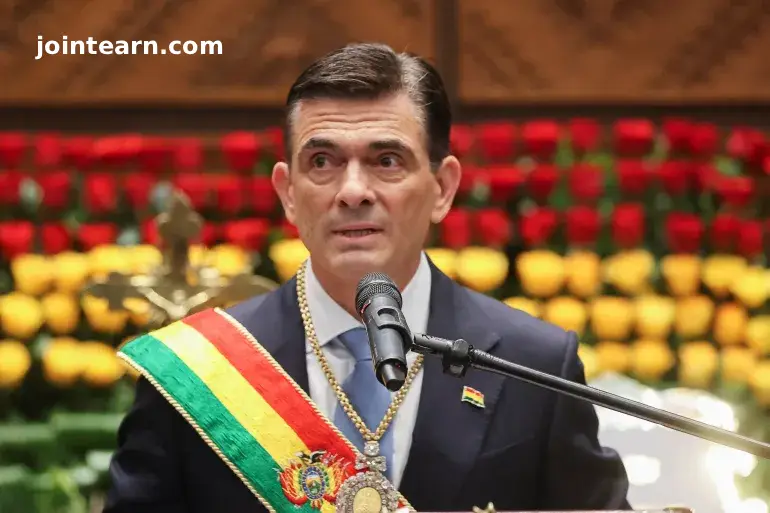
Bolivia Enters New Era After Two Decades of Left-Wing Rule
Rodrigo Paz was officially sworn in as President of Bolivia on November 8, 2025, marking a historic political shift after nearly 20 years of governance by the Movement for Socialism (MAS) party. The inauguration ceremony, held at the Plurinational Legislative Assembly in La Paz, was attended by delegations from over 70 countries, signaling international attention on Bolivia’s political and economic transition.
“God, family, and country: yes, I take the oath of office,” Paz declared during the ceremony, receiving enthusiastic applause.
At 58 years old, Paz is a pro-business conservative and the son of a former president. His ascent represents a decisive rejection of MAS, founded by former President Evo Morales, whose statist policies dominated Bolivia during the early 2000s commodities boom.
Economic Challenges: Worst Crisis in 40 Years
Paz assumes office amid Bolivia’s most severe economic crisis in four decades, with year-on-year inflation exceeding 20 percent, widespread shortages of fuel and US dollars, and a depleted stock of hard currency reserves.
The outgoing MAS government, led by Luis Arce, exhausted nearly all foreign reserves to sustain fuel subsidies, leaving the country vulnerable to market fluctuations.
Economists warn that the dual goals of maintaining social programmes while implementing market-oriented reforms may prove challenging, as fiscal discipline and subsidy cuts could clash with continued welfare spending.
‘Capitalism for All’: Paz’s Economic Vision
During his inauguration speech, Paz unveiled a pro-business, inclusive economic agenda dubbed “capitalism for all”, which includes:
- Decentralization of government functions to increase efficiency
- Lower taxes and fiscal discipline to stabilize public finances
- Continued social spending to protect vulnerable populations
- Openness to international trade and investment
“Never again an isolated Bolivia, bound by failed ideologies, or a Bolivia with its back turned to the world,” Paz said, emphasizing his commitment to global engagement after two decades of relative isolation under MAS.
Foreign Policy and International Cooperation
Paz also signaled a significant shift in Bolivia’s foreign policy. He has pledged to restore ties with the United States and cooperate with international organizations on security matters, including the US Drug Enforcement Administration (DEA), which was expelled by Morales in 2008.
The government plans to engage actively with multilateral institutions and foster international investment, particularly in sectors like energy, mining, and infrastructure, to stabilize Bolivia’s economic outlook.
Political Context: MAS Decline
The MAS party, which once thrived during the natural gas export boom, faces declining influence due to:
- Collapse of the fixed exchange rate and subsidy-driven economic model
- Reduced international commodity revenues
- Public dissatisfaction with high inflation and scarcity of essential goods
Paz’s victory in last month’s runoff election represents the electorate’s desire for a new economic model and global integration after years of ideological governance.
Challenges Ahead
Despite optimism, analysts warn that Paz faces significant hurdles:
- Containing inflation and currency instability
- Balancing fiscal responsibility with social programme commitments
- Navigating political opposition from MAS in the legislature
- Addressing public concerns over energy, employment, and cost of living
The success of Paz’s administration will largely depend on his ability to implement economic reforms without triggering social unrest, and to attract foreign investment to restore Bolivia’s financial stability.


Leave a Reply